Physiological Adaptations
Physiological adaptations are the internal mechanisms and processes that organisms undergo to survive and thrive in their environment. These adaptations enable organisms to maintain homeostasis and respond to external changes, such as temperature fluctuations, changes in food availability, and variations in light levels.
Examples of Physiological Adaptations
Physiological adaptations can include:
- Thermoregulation: The ability of an organism to regulate its body temperature in response to external heat or cold. This can involve mechanisms such as sweating, panting, or shivering.
- Osmoregulation: The regulation of water and salt concentrations within an organism's body to maintain proper balance. This can involve processes such as excretion and reabsorption in the kidneys.
- Metabolic adaptations: Changes in metabolic processes, such as the ability to switch between different energy sources or to enter a state of dormancy to conserve energy during periods of food scarcity.
- Respiratory adaptations: Modifications in the respiratory system to maximize oxygen uptake, such as increased lung capacity or specialized respiratory pigments in the blood.
- Behavioral adaptations: While not strictly physiological, behaviors such as migration, hibernation, and social cooperation can also be considered adaptations that help organisms cope with environmental challenges.
Study Guide
To understand physiological adaptations, it's important to grasp the following concepts:
- Homeostasis: The maintenance of stable internal conditions within an organism, despite external changes. Understand the various physiological processes involved in maintaining homeostasis, such as temperature regulation, blood sugar control, and pH balance.
- Cellular respiration: The process by which cells generate energy from nutrients. Learn about the different pathways of cellular respiration and how organisms can adapt their metabolism to different environmental conditions.
- Specialized organs and tissues: Study the structure and function of specialized organs and tissues involved in physiological adaptations, such as the kidneys for osmoregulation, the skin for thermoregulation, and the respiratory system for gas exchange.
- Regulatory mechanisms: Explore the hormonal and neural control systems that regulate physiological processes, such as the role of hormones in controlling blood sugar levels or the role of the nervous system in thermoregulation.
- Comparative physiology: Compare physiological adaptations across different species and environments to understand how natural selection has shaped the diverse array of adaptive strategies seen in the natural world.
Further Reading
For further exploration of physiological adaptations, consider delving into topics such as evolutionary physiology, ecological physiology, and the impact of environmental stressors on physiological function.
.◂Biology Worksheets and Study Guides High School. DNA technology/genetic engineering
Worksheet/Answer key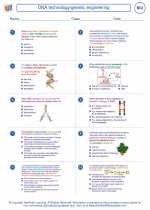 DNA technology/genetic engineering
DNA technology/genetic engineering  Worksheet/Answer key
Worksheet/Answer key DNA technology/genetic engineering
DNA technology/genetic engineering  Worksheet/Answer key
Worksheet/Answer key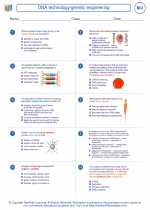 DNA technology/genetic engineering
DNA technology/genetic engineering  Worksheet/Answer key
Worksheet/Answer key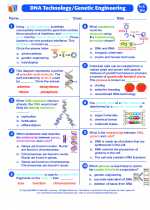 DNA technology/genetic engineering
DNA technology/genetic engineering  Vocabulary/Answer key
Vocabulary/Answer key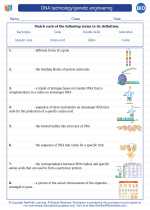 DNA technology/genetic engineering
DNA technology/genetic engineering  Vocabulary/Answer key
Vocabulary/Answer key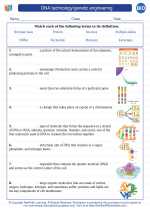 DNA technology/genetic engineering
DNA technology/genetic engineering  Vocabulary/Answer key
Vocabulary/Answer key DNA technology/genetic engineering
DNA technology/genetic engineering 

 Worksheet/Answer key
Worksheet/Answer key
 Worksheet/Answer key
Worksheet/Answer key
 Worksheet/Answer key
Worksheet/Answer key
 Vocabulary/Answer key
Vocabulary/Answer key
 Vocabulary/Answer key
Vocabulary/Answer key
 Vocabulary/Answer key
Vocabulary/Answer key

The resources above cover the following skills:
BIOLOGY
From Molecules to Organisms: Structures and Processes
Formulate an evidence-based explanation regarding how the composition of deoxyribonucleic acid (DNA) determines the structural organization of proteins.
Obtain, evaluate, and communicate information that explains how advancements in genetic technology (e.g., Human Genome Project, Encyclopedia of DNA Elements [ENCODE] project, 1000 Genomes Project) have contributed to the understanding as to how a genetic change at the DNA level may affect proteins and, in turn, influence the appearance of traits.
Heredity: Inheritance and Variation of Traits
Analyze and interpret data collected from probability calculations to explain the variation of expressed traits within a population.
Analyze and interpret data (e.g., pedigree charts, family and population studies) regarding Mendelian and complex genetic disorders (e.g., sickle-cell anemia, cystic fibrosis, type 2 diabetes) to determine patterns of genetic inheritance and disease risks from both genetic and environmental factors.